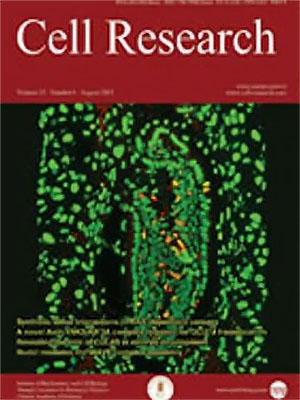Volume 9 Issue 1, March 1999: 51-60
ORIGINAL ARTICLES
mad-overexpression down regulates the malignant growth and p53 mediated apoptosis in human hepatocellular carcinoma BEL-7404 cells
ZHAO Hua, Yong Hua XU*
Shanghai Institute of Cell Biology, Chinese Academy of Sciences, 320 Yueyang Road, Shanghai 200031, China
Correspondence:
Mad protein has been shown
as an antagonist of c-Mycprotein in some cell lines. The effect of Mad protein
to the malignant phenotype of human hepatoma BEL-7404 cell line was investigated
experimentally. An eukarryotic vector pCDNA III containing full ORF fragment of
mad cDNA was transfected into targeted cells. Under G418 selection, stable Mad-overexpressed
cells were cloned. Studies on the effect of Mad over-expression in cell
proliferation and cell cycle revealed that cell morphology of the Mad-overexpressed
BEL-7404-M
1cells was significantlydifferent from the parent and
control vector transfected cells. DNA synthesis, cell proliferation and
anchorage-independent growth in soft-agar of the mad-transfected cells were
partially inhibited in comparison to control cells. Flow Cytometry analysis
indicated that mad over-expression might block more transfectant cells at G
0/G
1 phase, resulting in the retardation of cell proliferation. RT-PCR detected a
marked inhibition of the expression of cdc25A, an important regulator gene of G
0/G
1 to S phase in cell cycle. It was also found that Mad protein overexpression
could greatly suppress p53-mediated apoptosis in BEL-7404-M
1 cells in
the absence of serume. Thus, Mad proteins may function as a negative regulator
antagonizing c-Myc activity in the control of cell growth and apoptosis in human
hepatocellular carcinoma BEL-7404. cells
FULL TEXT | PDF
Browse 2413


